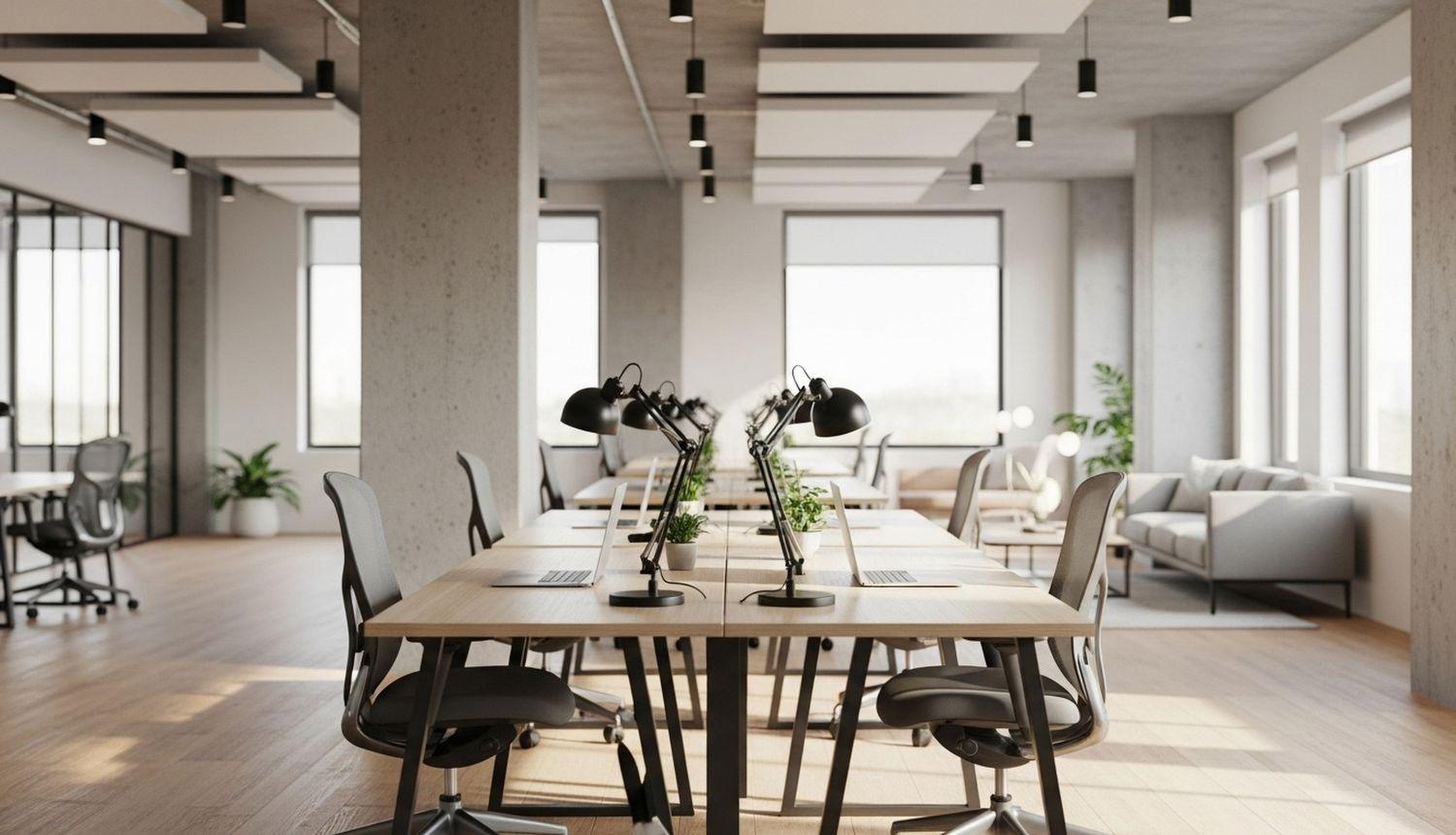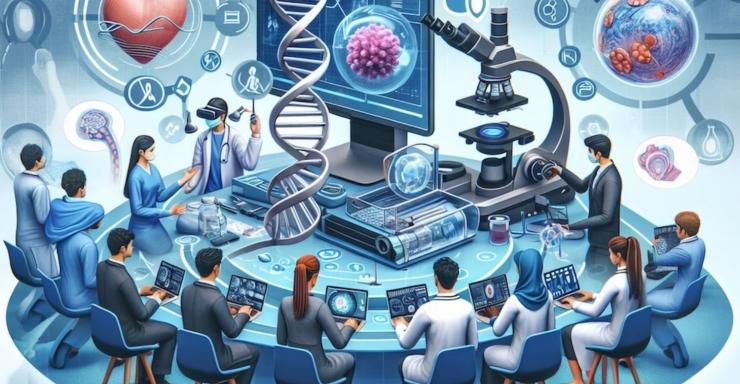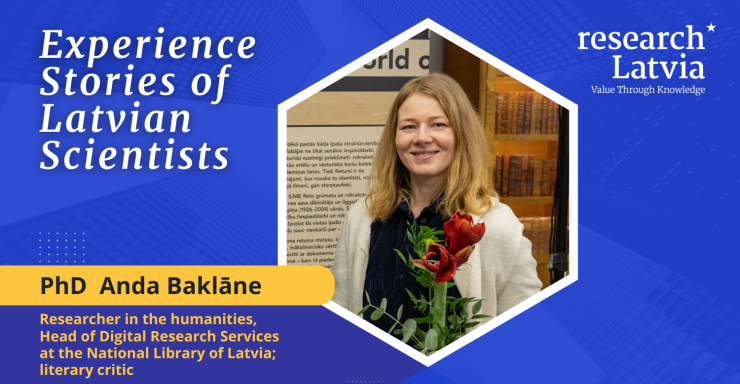Today, employers are compelled to design office spaces creatively to attract, retain, and motivate employees. The information and communication technology (ICT) sector is particularly notable in this regard. In addition to sleek, modern interiors, many offices offer café-level hot drink selections and even build dedicated rooms not only for children but also for pets. This is happening here in Riga as well, where I conducted an anthropological study in one such office.

To better understand how we arrived at this trend, in my previous article, I provided a broader overview of the history and development of offices. It described the shift from a restricted, tightly controlled work environment to a more open, home-like space, reflecting wider changes in work culture.
In this article, I share observations gathered during 2.5 months of anthropological fieldwork at one of Latvia's most modern information technology (IT) companies, which, for the sake of anonymity, I will refer to as "Dotifai." The company employs more than 150 people, most of whom are programmers and engineers—highly skilled and in-demand professionals. This example clearly illustrates the contemporary trend toward moving away from hierarchical, strictly controlled work environments, in line with the historical development of office anthropology.
A special place for dogs and a culture of equality
The "Dotifai" office is built with an emphasis on employee well-being: work areas are surrounded by rows of large windows, filled with houseplants, and complemented by soft furniture, game zones, and relaxation areas. The office even includes a special space for employees' dogs, who have become an emotional centre of the workplace, prompting smiles and bringing a playful atmosphere to visitors. Such an environment not only aims to reduce the sense of tension once associated with workspaces but also encourages informal interactions among colleagues. Compared with earlier times, when hierarchy and control dominated work organisation, the "Dotifai" environment displays a strong culture of equality. Here, managers do not assign tasks.
Employees choose their own tasks within projects and teams. While junior employees are usually aware of their skill and experience limits, this approach still gives them opportunities to join more complex projects if they wish and have the team's support. Trust is the foundation of this system: it is assumed that senior colleagues will not choose only the simplest tasks, and juniors will not overestimate their abilities. This collaborative culture is built on equal opportunities and individual interests, fostering both personal growth and team effectiveness.
The office layout also reflects this principle of equality. All desks are shared; anyone may book a workplace in any area, but it must be cleared of personal belongings at the end of the day. No one has a permanent desk, not even the management team. For private conversations, employees can book meeting rooms or focus rooms, but everyone is encouraged to work in the open-plan area.
Yet control has not disappeared entirely; it has simply changed its form, with technologies helping to perform this function. Although "Dotifai" does not measure productivity by daily routines or track computer activity, work quality can still be monitored through two-week project cycles, at the end of which results are evaluated. This gives employees greater flexibility. For instance, if someone feels unwell, they can work less without guilt and complete their tasks later within the cycle.
Communism enters through capitalism's back door
When we imagine safety, we often associate it with home—a space where others are not seen as competitors, where trust prevails, and where achieving shared goals is also in our own interest. Physically, such an environment is marked by soft furniture, joyful shared moments, houseplants, artwork, and shelves filled with books. These same elements define the "Dotifai" office environment described earlier.
This setting neatly illustrates the principle of "baseline communism," described by anthropologist David Graeber: people help one another, share resources, and act according to needs rather than strict accounts of "I give you, you give me."
In his seminal work Debt: The First 5,000 Years, Graeber explains this concept as a fundamental principle of human economic and social interaction. In his view, communism is not merely a utopian ideal or a hallmark of state-controlled regimes, but an essential aspect of everyday human relations that exists universally to varying degrees.
The concept describes resource redistribution and people's willingness to help one another based on needs rather than the bookkeeping of debts. Graeber defines communism as an interactional principle rooted in the idea "from each according to their abilities, to each according to their needs" (Graeber 2011, 94).
Seen through this lens, "Dotifai's" work culture reflects baseline communism: employees do not view each other as competitors but as partners. This creates an environment where cooperation and self-realisation take precedence, even though the company's primary goal remains profit. In this interpretation, communism highlights mutual help and access to resources as essential features of the culture, and it seems natural that workplaces are becoming increasingly home-like to evoke a sense of safety where such principles can thrive. Thus, we arrive, unexpectedly, at the conclusion that communism has slipped in through capitalism's back door and now quietly lives in ICT offices.
The workplace becomes a kindergarten for adults
In the ICT sector, employees are highly sought after, and most of them are young men. Across Europe, 80.6% of ICT workers are male; in Latvia, the figure is slightly lower at 76%. The age structure is similar. In Europe, 37.3% of ICT workers are under 35, while in Latvia the number reaches 48.2% (Eurostat 2024). A similar picture appeared during my fieldwork at the "Dotifai" office, where most employees were indeed relatively young men, though exact statistics are not publicly disclosed.
Considering this employee profile and the conveniences available in the office, one unexpectedly begins to associate the environment with a kindergarten, only for adults. The employer provides breakfast; later, one can make a warm drink, relax on a couch, or even play video games with friends.
A dishwasher washes dishes, and the kitchen often contains company-provided snacks to celebrate various occasions. The workplace also financially and logistically supports informal interest groups, both during and after work hours, indirectly extending the "day shift." At the same time, this environment undeniably reduces work-related tension and reinforces a sense of home. Although it may sound like a utopia, by removing various everyday worries from the workspace, the employer is ultimately trying to secure greater employee focus. This trend, however, blurs the boundary between work and private life.
As the shortage of highly qualified IT specialists persists and companies compete for talent, a contest becomes inevitable: who can offer the most: free fruit, drinks, a gym, and other perks.
These well-paid, sought-after specialists do pay attention to work environment and culture, and as a result, offices increasingly resemble a "dream workplace", a place where work is comfortable and becomes just one part of daily life, enriched by socialising and entertaining activities.
We want to work from home, but we go to the office to socialise
One of the main principles of "new work forms" is flexibility—the freedom to choose when and where to work. In the ICT sector, this approach is prevalent, as work is usually conducted in the digital environment. Consequently, the office's function is changing. It is no longer only a place where tasks are completed but also a social environment that supports collaboration, creativity, and collective identity.
"Dotifai" embodies this approach. The office is designed to support work in distributed teams, including hybrid work models and collaboration with colleagues in other countries. Thus, the space and technical setup are planned to enable equally comfortable work both on-site and remotely. Meanwhile, the design and usage rules are intended to encourage collaboration.
The office's purpose is not merely to provide a workplace but to create an environment that encourages employees to return and maintain a sense of belonging to the team.
Fieldwork observations show that despite the carefully planned and comfortable environment, most employees work on-site only two to three days a week. Their choice is primarily driven by the desire to socialise with colleagues rather than any formal requirement to be physically present. Surveys and informal conversations reveal that employees see the office as a place to exchange ideas, discuss current matters, or spend time together, all of which fosters collaboration and productivity.
This trend highlights a broader challenge in modern office design: combining two opposing functions, a space for focus and one for social interaction. Finding this balance has become a crucial criterion for successful office design and organisational culture today.
Well-being to make a profit
In the ICT sector, employers increasingly demonstrate care for employee well-being, yet these changes are not entirely altruistic. On the one hand, office environments are becoming more humane. Employers invest in cosy, comfortable spaces and events aimed at team bonding and entertainment. On the other hand, these initiatives also serve the company's interests; the more satisfied and loyal the employee, the higher their productivity.
The "Dotifai" example illustrates this balance well. Management decisions show an apparent effort to adapt to employee needs and create an environment that supports self-realisation. Yet this "human-centred" approach is simultaneously a strategy to attract and retain highly qualified "knowledge workers" specialists whose skills are scarce in the global labour market.
In this context, the work environment reflects a paradoxical harmony between capitalism's goals and the communist principle "from each according to their abilities, to each according to their needs."
Anthropologically, similar forms of work organisation have long been observed in various communal societies. For example, in Andean mountain communities, work is experienced collectively, tasks are carried out together, and celebrations symbolically reinforce group belonging. Here, work is not just an economic function but a social activity that unites people (Harris 2020, 144–145).
A similar sense of communal life is evident in the everyday rhythm of the "Dotifai" office. Work is organised within teams, and success is seen as a collective achievement. Although benefits are not distributed directly, the employer symbolically "shares" them by creating a supportive environment, ensuring comfort, and caring for employee well-being at a higher level than usual. In this model, the relationship between employer and employee becomes a mutually beneficial exchange: the employer relieves the employee of everyday concerns in exchange for the employee's energy and loyalty.


